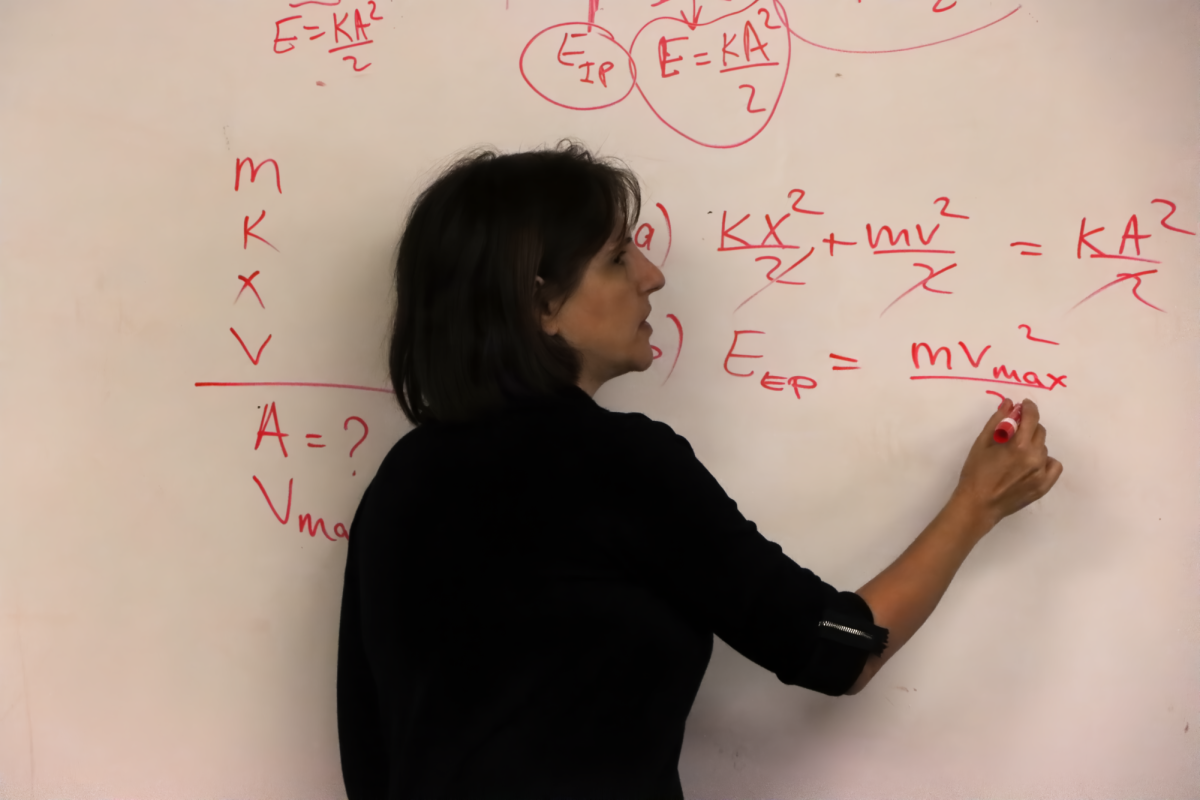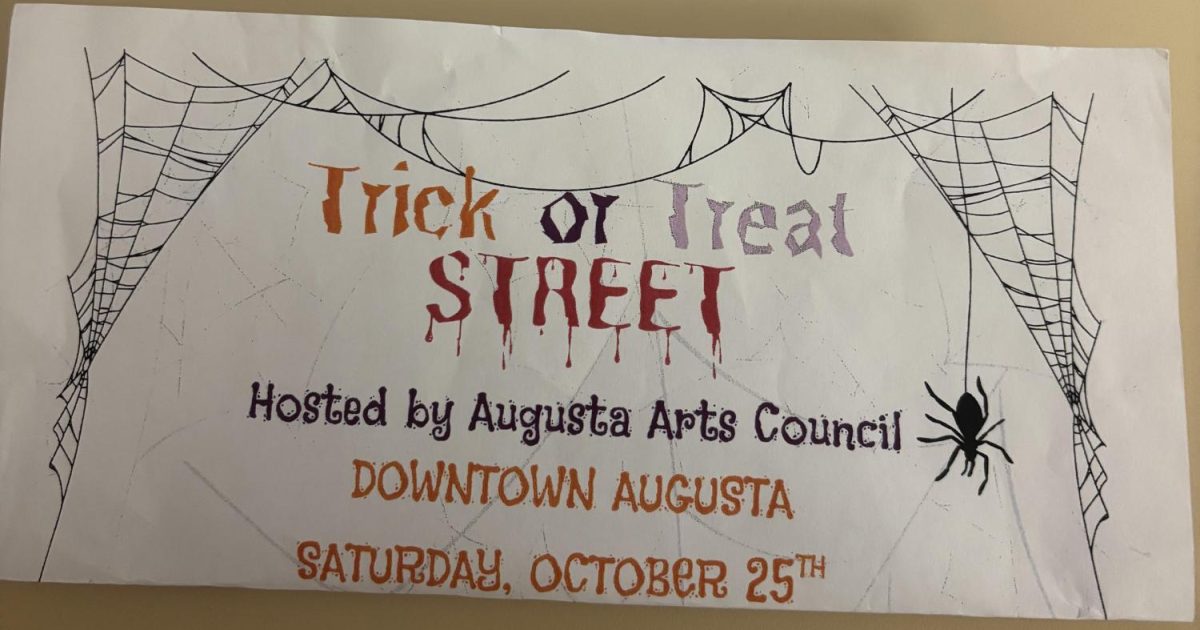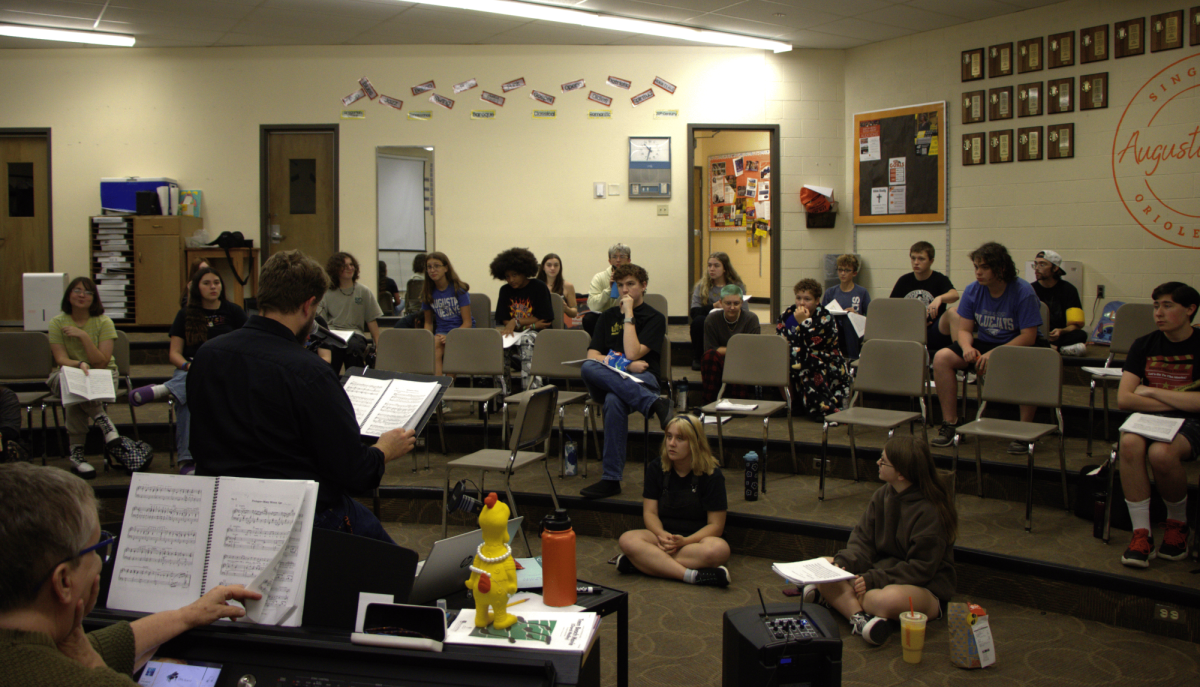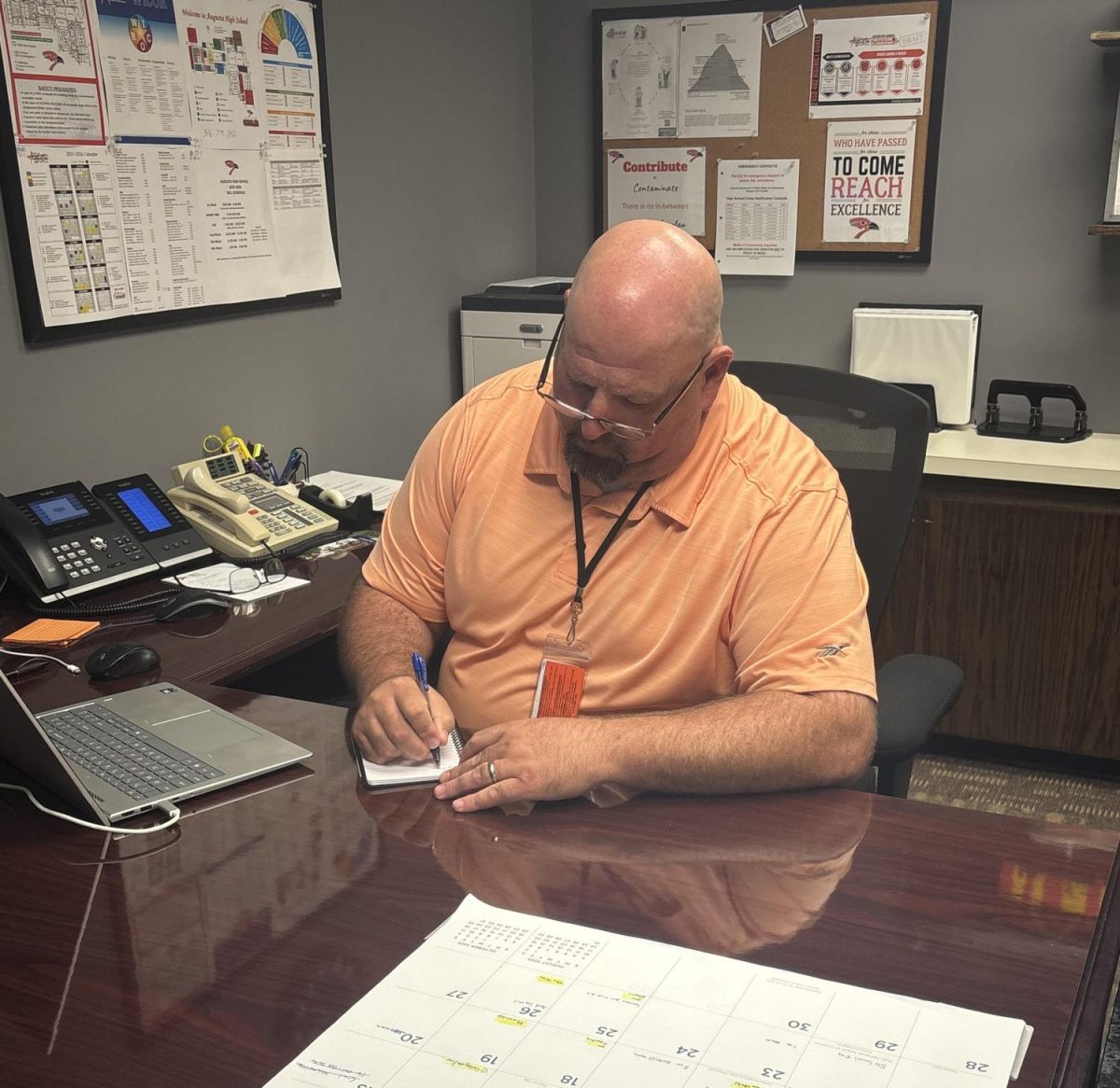Among the staff at the school, one teacher sticks out with her accent. A Romanian teacher who teaches math and physics, lived through one of the bloodiest revolutions in modern European history.
Geometry teacher Stefania Tallberg was only a teenager when the Romanian Revolution of 1989 occurred. Thirty-five years later, she is a teacher in the United States, a different experience than that of Communist Romania.
“There were lots of restrictions, people were thrown into political prisons for jokes,” Tallberg said. “There were food lines that were packed until 7 p.m. every day.”
Tallberg remembers how difficult life was with the restrictions on utilities including electricity and gas.
“It was cold in our house,” Tallberg said. “People started to come up with various ideas to warm up their apartments and houses. They would build stoves and fireplaces, many fires started that way. It was difficult.”
When the revolution occurred, all Tallberg could do was watch her television, and wait.
“I was watching TV and crying,” Tallberg said. “Everything was televised so we would watch people give their testimonies about their lost family members during the revolution, and you would see bodies in the streets”
Tallberg remembers the moment she knew the end of the revolution was approaching.
“There was a bittersweet moment when we knew freedom was coming,” Tallberg said. “On the other hand, you saw all the suffering, so you are sad because of it.”
When the revolution ended, Tallberg recalls how different the country was.
“All of a sudden the stores have food and abundance. There are articles of clothing we had never seen. The country started importing, which it was not doing before,” Tallberg said. “There was freedom of speech; to me, to everybody, it was mindblowing to be able to speak our mind without fear of repercussions, talking about the government, and about everything that was going on before that [revolution] happened.”
The revolution took place over nine days, from Dec. 16 through Christmas when it ended with the death of dictator Nicolae Ceaușescu. Tallberg’s opinion is that he grew corrupt because of his power.
“Ceaușescu was in power for more than 25 years,” Tallberg said. “Power goes to one’s head after a certain amount of time. Maybe it’s a certain amount of paranoia that goes in, but they start to develop a god complex, but I do believe that, unfortunately, this is human nature.”
Without the revolution, Tallberg likely would not be where she is today.
“With Communism, you could not leave the country; we’re isolated,” Tallberg said. “People were actually thrown in prisons for receiving letters from Western Europe, from having phone calls from the US. The level of paranoia against any connections with capitalistic countries was insane. They were declared an enemy of the people, and you would be thrown in jail for having a phone call.”
After the revolution, Tallberg was able to be an exchange student at Wichita State University where she earned her masters degree in teaching.









